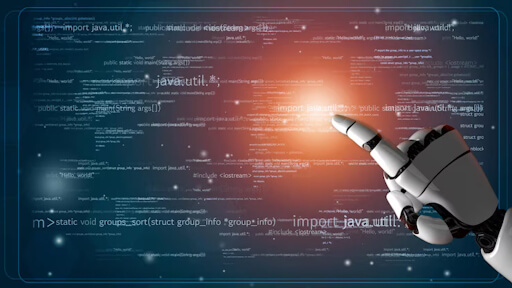 1-800-805-5783
1-800-805-5783 
In recent years, generative Artificial Intelligence has transitioned from experimental research facilities into mainstream software development platforms. This technology’s most revolutionary application is code generation, where AI systems train on vast datasets to perform real-time code writing, suggestion, and optimization. Due to this evolution, the software engineering realm experiences widespread transformation, which alters developers’ methods for building, testing, and maintaining applications.
In this in-depth article, we explore how AI for code generation is shaping the future of software development, the statistics backing this change, the benefits and challenges for engineering teams, and the road ahead.

AI code generation uses machine learning—intense learning models trained on vast code repositories to generate programming code automatically. This can range from suggesting code snippets as a developer types to creating complete functions or programs based on natural language prompts.
Developers already use prominent tools like GitHub Copilot, Amazon CodeWhisperer, and Tabnine to accelerate their coding workflows. These systems are typically powered by the best large language models (LLMs) for code generation, like OpenAI’s Codex or Google’s Gemini, trained on billions of lines of publicly available code.
One of the primary impacts of AI code OpenAI’s son is improving Google’s productivity. According to a 2023 report by McKinsey & Company, developers who use AI code tools report a 20% to 50% boost in speed for everyday coding tasks. When tasks like boilerplate code writing, syntax corrections, or API usage suggestions are automated, engineers are freed up to focus on logic design, architecture, and creative problem-solving.
Stat Snapshot:
A GitHub survey of developers using Copilot found that 88% felt more productive and 77% spent less time searching for information while using the tool.
When code is generated more quickly, features are released more quickly. This results in a shorter time to market for companies, which might give them a competitive edge in rapidly changing sectors. When AI helps write code more quickly and precisely, agile development cycles become even more agile.
While early critics feared that AI-generated code might be error-prone or inefficient, recent advancements have dramatically improved accuracy. AI code generation tools can now suggest well-structured, reusable code patterns, often based on industry best practices.
Stat Snapshot:
According to Forrester Research, AI-assisted development can reduce production defects by up to 30%, as models are increasingly trained on high-quality open-source code.
Generative AI also lowers the barrier to entry for non-technical users or beginner developers. Natural language interfaces allow users to describe a task in plain English and receive functioning code as output. This democratization of programming enables business analysts, product managers, and designers to prototype ideas without deep programming expertise.

AI code generation helps businesses save on development costs and increase output with smaller teams. This is particularly valuable for startups and SMBs looking to scale quickly with limited resources.
Stat Snapshot:
McKinsey estimates that generative AI could add between $2.6 trillion and $4.4 trillion annually across industries. This is expected to occur in software and IT services through increased developer productivity and automation.
AI in software engineering is no longer a novelty—it’s rapidly becoming the norm.
Key Insight: As AI tools integrate more seamlessly into IDEs and CI/CD pipelines, usage will only increase. Today, most AI code tools act as assistants, but the future might see them as autonomous collaborators.

Despite their sophistication, AI tools are not infallible. They may hallucinate functions or misuse APIs. Therefore, human oversight remains crucial. Developers must validate and refactor generated code to ensure accuracy and security.
Legal questions exist about whether the AI-borne code based on the open-source dataset can violate the current copyright. Companies require clear guidelines and auditing systems to avoid legal losses.
A long-term risk is that developers become overly reliant on AI and neglect the fundamental skills of coding. Engineering teams must balance leveraging AI for speed while continuously developing human problem-solving and design skills.
As AI models improve and become more context-aware, we will likely move beyond suggestion-based tools to agent-based systems that can take high-level product requirements and autonomously produce, test, and deploy software components.
Emerging Trends:

Generative AI is reshaping the way software is created. With the ability to automate repetitive tasks, reduce time in market, and empower employers, the AI code generation is proving to be more than a trend – this is a fundamental change. But with any transformative technique, adoption should be thoughtful. By combining AI’s efficiency with the creativity and decisions of human developers, organizations can realize the full potential of this paradigm change – cleaner, rapid, and more intelligent software than ever.
1. How does generative AI assist in code generation?
Generative AI models like GitHub Copilot or ChatGPT can generate code snippets, complete functions, or even build full applications based on natural language prompts. They analyze vast datasets of existing code to predict and produce relevant code patterns, enhancing developer productivity.
2. Can generative AI help with debugging or code optimization?
Yes, generative AI can analyze code for errors, suggest fixes, and recommend optimizations. It can also provide alternative implementations for better performance or readability, acting as an intelligent assistant during development.
3. Is generative AI reliable for production-level code?
While AI-generated code can be efficient for prototyping or automation, it requires human review and testing before deployment. If not carefully validated, AI may produce insecure or inefficient code.
4. What are the benefits of generative AI in software engineering teams?
Generative AI boosts development speed, reduces repetitive tasks, aids in onboarding new developers, and helps maintain consistent coding standards. It allows engineers to focus more on creative and high-level problem-solving.
[x]cube has been AI-native from the beginning, and we’ve been working with various versions of AI tech for over a decade. For example, we’ve been working with Bert and GPT’s developer interface even before the public release of ChatGPT.
One of our initiatives has significantly improved the OCR scan rate for a complex extraction project. We’ve also been using Gen AI for projects ranging from object recognition to prediction improvement and chat-based interfaces.
Interested in transforming your business with generative AI? Talk to our experts over a FREE consultation today!